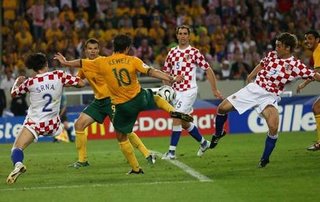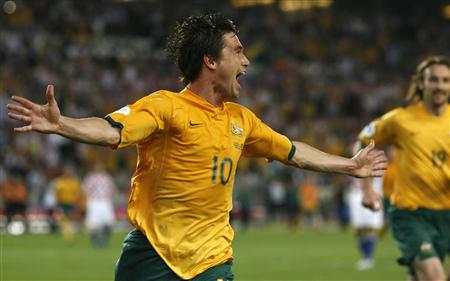Eight Areas Of Concern This MonthI haven't done this in a couple of weeks and he's been sending me some interesting things.
So in no particular order, here they are:
1.
About Global Warming and glaciers.
COLUMBUS , Ohio – For the first time, glaciologists have combined and compared sets of ancient climate records trapped in ice cores from the South American Andes and the Asian Himalayas to paint a picture of how climate has changed – and is still changing – in the tropics.
Their conclusions mark a massive climate shift to a cooler regime that occurred just over 5,000 years ago, and a more recent reversal to a much warmer world within the last 50 years.
The evidence also suggests that most of the high-altitude glaciers in the planet's tropical regions will disappear in the near future. The paper is included in the current issue of the journal Proceedings of the National Academy of Science.
Lastly, the research shows that in most of the world, glaciers and ice caps are rapidly retreating, even in areas where precipitation increases are documented. This implicates increasing temperatures and not decreasing precipitation as the most likely culprit.
The researchers from Ohio State University's Byrd Polar Research Center and three other universities combined the chronological climate records retrieved from seven remote locations north and south of the equator. Cores drilled through ice caps and glaciers there have captured a climate history of each region, in some cases, providing annual records and in others decadal averages.
“Approximately 70 percent of the world's population now lives in the tropics so when climate changes there, the impacts are likely to be enormous,” explains Lonnie Thompson, professor of geological sciences at Ohio State.
For the last three decades, Thompson has led nearly 50 expeditions to remote ice caps and glaciers to drill cores through them and retrieve climate records. This study includes cores taken from the Huascaran and Quelccaya ice caps in Peru; the Sajama ice cap in Bolivia; the Dunde, Guliya, Puruogangri and Dasuopu ice caps in China.
For each of these cores, the team -- including research partner Ellen Mosley-Thompson, professor of geography at Ohio State – extracted chronological measurements of the ratio of two oxygen isotopes -- O18 and O16 -- whose ratio serves as an indicator of air temperature at the time the ice was formed. All seven cores provided clear annual records of the isotope ratios for the last 400 years and decadally averaged records dating back 2000 years.
So much for that for Global Warming scepticism.
There's also
this article.
The Earth is the hottest it has been in at least 400 years, probably even longer. The National Academy of Sciences, reaching that conclusion in a broad review of scientific work requested by Congress, reported Thursday that the "recent warmth is unprecedented for at least the last 400 years and potentially the last several millennia."
A panel of top climate scientists told lawmakers that the Earth is heating up and that "human activities are responsible for much of the recent warming." Their 155-page report said average global surface temperatures in the Northern Hemisphere rose about 1 degree during the 20th century.
This is shown in boreholes, retreating glaciers and other evidence found in nature, said Gerald North, a geosciences professor at Texas A&M University who chaired the academy's panel.
The report was requested in November by the chairman of the House Science Committee, Rep. Sherwood Boehlert, R-N.Y., to address naysayers who question whether global warming is a major threat.
Last year, when the House Energy and Commerce Committee chairman, Rep. Joe Barton, R-Texas, launched an investigation of three climate scientists, Boehlert said Barton should try to learn from scientists, not intimidate them.
Boehlert said Thursday the report shows the value of having scientists advise Congress.
"There is nothing in this report that should raise any doubts about the broad scientific consensus on global climate change," he said.
Aiyah.
2. X-Files Type Disease Article
This is Distrubing.
OAKLAND -- A horrifying and fascinating disease is affecting thousands of people in the Bay Area, along the Gulf Coast and in Florida. Though some doctors have claimed the malady is psychosomatic, other scientists are making headway unraveling the mystery of Morgellons Disease.
Former Oakland A's pitcher Billy Koch has it. And so do his wife and their three children. And though they can afford top medical care, doctors have no answers.It started in Oakland four years ago. Koch saved 44 games and was the top reliever in the major leagues. His fastball wowed crowds. And then the strangeness began.
"He freaked out. He wanted to ignore it … I wanted to too. But when it comes to your kids, you gotta stop ignoring it," said Koch's wife Brandi.
She describes their symptoms: "It was the scariest thing I had ever realized in my entire life. There was matter and black specks coming out and off of my skin."
Within two years -- at age 29 -- Billy Koch was out of baseball, partly because of the uncontrollable muscle twitching that went on for months at a time and often kept up him up all night.The disease is characterized by slow healing skin lesions that often extrude small, dark filaments, especially after bathing.
"That's when it would really just ooze -- literally ooze out of my skin," explained Brandi Koch.
The couple was at wit's end after numerous doctors not only provided little in the way of relief, but actually were skeptical about their health problems: "There's no reasonable explanation for it. I'm not seeing things. l'm watching it happen. We're pretty sane people…" lamented Billy.
Infectious disease specialist Dr. Neelam Uppal sympathized with the Kochs' plight: "They've seen several doctors, [and] everybody's told them they're crazy. It's in their head. They're delusional."
Dr. Uppal gave the Kochs and fifteen other patients a powerful anti-parasite medicine and antibiotics that helped temporarily. But the filaments come back.
Testing of the filaments brought no results, according to Dr. Uppal: "I've seen [it]; sent it to the lab. They can't identify it. They'll say 'They're nothing.'"
The reaction of medical professionals has made a difficult situation even harder for Brandi Koch: "It's not enough that you're suffering and hurting. It's 'You're an idiot!' and 'You're crazy!' on top of it. I'm really hurt and sad and scared."
The Kochs may be the most recognizable of more than 3,000 families nationwide reporting these same unexplained symptoms. There are curious clusters, in Florida, along the Gulf Coast and in the San Francisco Bay Area. That's where we begin our investigation into new clues to this medical mystery.
Now that's weird.
3. String Theory As A Crock
This one
basically stakes out turf against this string theory biz.
"When it comes to extending our knowledge of the laws of nature, we have made no real headway" in 30 years, writes physicist Lee Smolin of the Perimeter Institute in Waterloo, Canada, in his book, "The Trouble with Physics," also due in September. "It's called hitting the wall."
He blames string theory for this "crisis in particle physics," the branch of physics that tries to explain the most fundamental forces and building blocks of the world.
String theory, which took off in 1984, posits that elementary particles such as electrons are not points, as standard physics had it. They are, instead, vibrations of one-dimensional strings 1/100 billion billionth the size of an atomic nucleus. Different vibrations supposedly produce all the subatomic particles from quarks to gluons. Oh, and strings exist in a space of 10, or maybe 11, dimensions. No one knows exactly what or where the extra dimensions are, but assuming their existence makes the math work.
String theory, proponents said, could reconcile quantum mechanics (the physics of subatomic particles) and gravity, the longest-distance force in the universe. That impressed particle physicists no end. In the 1980s, most jumped on the string bandwagon and since then, stringsters have written thousands of papers.
 But one thing they haven't done is coax a single prediction from their theory. In fact, "theory" is a misnomer, since unlike general relativity theory or quantum theory, string theory is not a concise set of solvable equations describing the behavior of the physical world. It's more of an idea or a framework.
But one thing they haven't done is coax a single prediction from their theory. In fact, "theory" is a misnomer, since unlike general relativity theory or quantum theory, string theory is not a concise set of solvable equations describing the behavior of the physical world. It's more of an idea or a framework.
Partly as a result, string theory "makes no new predictions that are testable by current _ or even currently conceivable _ experiments," writes Prof. Smolin. "The few clean predictions it does make have already been made by other" theories.
And there we were thinking, String Theory is 'it'.
4. What's DARPA Up To?
Here's an
interesting page that leads to more
interesting pages like this one.
The Virtual Soldier Program seeks to establish a new capability that will revolutionize medical care to support the soldier. The program will create the mathematical modeling approaches to develop an information (computational) representation of an individual soldier that can be used to augment medical care on and off the battlefield with a new level of integration. This virtual soldier will be based on a highly complex model that is derived from biologically driven principles and populated with properties that are extracted from evidence-based data. The initial effort will consist of a two-component, three-dimensionally displayed model: (1) an organ-tissue system model component, and (2) a properties level model component. Once derived, the virtual soldier will provide multiple capabilities, including but not limited to automatic diagnosis of battlefield injuries, testing and evaluation of non-lethal weapons, and virtual clinical trials.
Check it out.
5. About Gary McKinnon
Don't miss
this interview. It's really interesting; if nothing else, it's quite enlightening about certan things that maybe some people think maybe we need not ought to know. If you search his name on Wikipedia, you get
this page:
The unemployed computer systems administrator is accused of hacking into 97 United States military and NASA computers in 2001 and 2002. The computer networks he is accused of hacking include networks owned by NASA, the US Army, US Navy, Department of Defense and the US Air Force, and also one belonging to The Pentagon. The US estimates claim the costs of tracking and correcting the problems he allegedly caused were around 700,000 USD.
McKinnon was originally tracked down and arrested under the Computer Misuse Act by the UK National Hi-Tech Crime Unit (NHTCU) in 2002, and later that year was also indicted by the United States government. He remained at liberty although subject to bail conditions including a requirement to sign in at his local police station every evening, and to remain at his home address at night. In addition he was banned from using a computer with access to the internet. There have been no further developments in respect of the charges relating to United Kingdom legislation, but in late 2005 the United States formally began extradition proceedings.
If he is extradited to the U.S. and charged, McKinnon faces up to 70 years in jail and has expressed fears that he could be sent to Guantanamo Bay.[1][2] He has said that he will contest the extradition proceedings and believes that he should face trial in the UK, principally as he argues that his "crimes" were committed there and not in the United States.
In an interview televised on the BBC's Click programme,[3] he claimed that he was able to access the military's networks simply by using a Perl script that searched for blank passwords; in other words his report suggests that there were computers on these networks with the default passwords still active.
You sort of wonder why they're so keen to get this fellow if there was nothing to any of this stuff.
6. The Zap Guns
This is straight out o Phillip K Dick,
this stuff.
An experimental micro-satellite with the ability to disrupt other nations’ military reconnaissance and communications satellites.
An Air Force program nicknamed, Rods From God, aims to hurl cylinders of tungsten, titanium or uranium from the edge of space to destroy targets on the ground, striking at speeds of up to 7,200 miles per hour with the force of a small nuclear weapon.
“We haven’t reached the point of strafing and bombing from space. Nonetheless, we are thinking about those possibilities.” Peter Teets, former Acting Secretary of the Air Force
Yowza. How scary is that? There's more:
The MTHEL is potentially the most valuable directed energy weapon in the U.S. arsenal. MTHEL is a high-energy chemical laser weapon that may some day in the very near future provide homeland security defense in and around major cities and other sensitive sites across the country. In tests conducted in August 2004 at HELSTF, THEL (the stationary version of MTHEL) successfully shot down 100% of multiple targets, including; rockets, artillery shells and mortar rounds ranging from 81mm to 120mm. It never missed. The cost per round, at about $3,000.00, pales in comparison to other, more conventional missile defense systems such as the PATRIOT, which has a cost of several hundred thousand dollars per round. Even at that, the kill ratio of the PATRIOT is significantly lower that the THEL and it was never designed to intercept incoming mortar rounds or other small projectiles. The range of the THEL is also classified, but is “several kilometers” according to Sutton and Gregg Basel, project manager for THEL at Northrop-Grumman, THEL system designer.
Zeus, again virtually unknown to the majority of Americans, has been successfully deployed in both Afghanistan and Iraq in an EOD or Explosive Ordinance Disposal role. With a solid-state laser mounted on the back of a HMMWV where the machine gun turret would normally sit, ZEUS, with only a 2-3 kilo-watt laser and a range of up to 300 meters, has destroyed over 100 IED’s (improvised explosive devices) and other unexploded ordinance in combat zones. Overall, ZEUS has destroyed over 1,600 targets with a kill rate of 98%, only slightly less than THEL. Currently, the U.S. Army has only three operational ZEUS weapons systems in operation. Wachs, like Sutton before him, said that the only thing preventing him from building and deploying more systems is “funding from Washington.” He added that when ZEUS destroyed the first IED in Afghanistan, “cheers erupted” from the troops. No doubt.
Whoah, boys and girls!.
7. 9/11 Stuff.
Richard Andrew Grove interview
here for download. If that name rings a bell, maybe you know too much already. :)
8. The Lucifer Project
As if the
name isn't scary enough...
There are a few people in the world, who with endless imagination and creativity in union with massive resources and high technology have been playing “God” and secretly experimenting with changing the makeup of our solar system. There are not too many plans conceived that could be greater than creating a new star in our own backyard. One could almost claim godship upon success. Although at first I considered hiding what I knew so that the plan would go forward with full success, in the end my conscience overcame this desire since I knew there could be dangerous Earth implications for such a plan. Also keeping something this large a secret would be like finding a massive buried treasure while deep-sea diving and then never returning or telling anyone about it. (I still find myself wavering back and forth between wanting to see this spectacular plan unfold and not wanting it to happen knowing the potential consequences). I first stumbled onto the reality of this project while reading a famous conspiracy book entitled “Behold A Pale Horse” by William Cooper, former U.S. Naval Security Briefing Team member. Most people who came across Cooper's short account (only a couple paragraphs) immediately discounted it, afterall, creating a star with a plutonium bomb sounds somewhat incredible at first, but this idea captured my imagination and completely fascinated me. I kept asking myself, “Why discount this?” With advanced knowledge and technology, I could see how some great minds would start to think about doing once impossible things. The more I checked into the facts, the more I became convinced that Cooper did not just make this up out of the blue. Too many coinciding events that he had predicted started manifesting themselves for it all to be just a tale. I could not keep quiet anymore about the plan despite my appreciation of the deep science, creativity, and innovation that made it possible. Also, despite the long odds of the event occurring, I felt compelled to warn the public because of the potential danger from the cast-off of matter that normally occurs in a star's ignition. I will also make a case that there is a great deal of ritualistic symbology associated with the timing of this event, symbology that has strong ties to Freemasonry (old and new). I ask the reader to consider this scenario first: If a handful of the world's greatest scientists were hired and paid top dollar by an organization with great wealth to solve a nearly impossible scientific problem and were allowed to work on it full time for years or even decades, do you think they would have a good shot at solving the problem, assuming they had the latest and greatest technology at their fingertips and were allowed to work in secrecy? My personal answer to this is “Yes, I believe they would have a very good chance!” One needs only to know the story of the “Manhattan Project” to see this.
The logic of the Lucifer Project other than the extreme thrill of creating something so amazing, if not of sinister intent, could be that in order for humans to one day break out of this shell of Earth we must create more favorable conditions for traveling within our own solar system. For instance, could humans one day live on Titan? Maybe, but how do we warm it up? We play the part of creator and conduct solar system terraforming on a grand scale by turning Saturn into a small star that supplies Titan with the heat and light it needs to awaken. Turning one of our gas giants, like Saturn, into a star is the essence of the “Lucifer Project.”
The rest of it's even more 'out there'.
8. The Free Sex In China?
This one is more light-hearted.
A little sexpot was running and not looking where she was going, instead eyeing a luscious panting object to her side, and slammed right into a big sign -- a sign, no less, advertising plastic surgery. Sexpots and panting-pots rush to the tragedy. “This is a national emergency!” a sexpot screams. “Call up the People’s Army!” a panting-pot demands. Tears fall -- a river forms -- a roaring river roars -- the Germanic-thick gate quivers….
With little eyes barely open, the dazed sexpot looks up, blinks twice, and mumbles, “Wo de tou fa zen me yang?” Translation: “Is my hair OK?”
“It’s a national miracle!” ricochets off the venerable university's walls and echoes throughout the campus. Students on the lawn hug each other, tightly. Professors -- all classes were suspended during the national emergency -- critically analyze the national miracle. Under the guidance of a hastily formed “Central Committee for Tianjin University Miracle,” a declaration is posted on all university bulletin boards:
“The national miracle student recovery is attributed to the superior strength of the Chinese spirit that is re-blossoming under the superior leadership of the Communist Party that is leading all Chinese to a better and better life….”
The old Mao survives in the new China, marching with a nascent licentiousness that gives this mysterious land some big-time twisted strangeness. But what is this strangeness all about?
Kind of funny to think it's only taking root now.


























